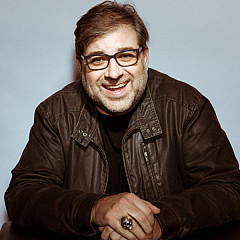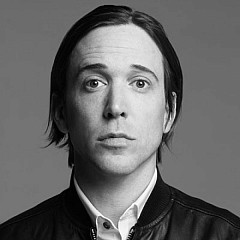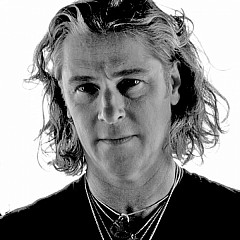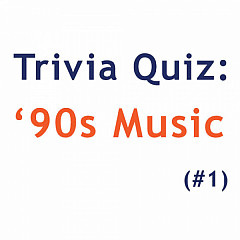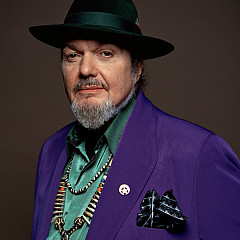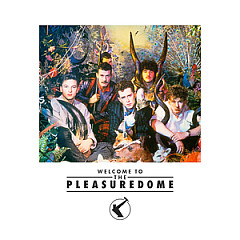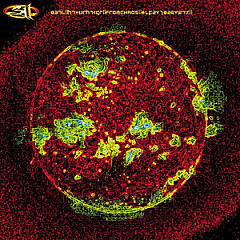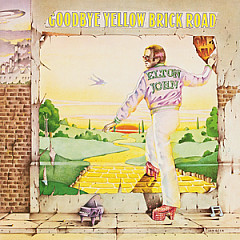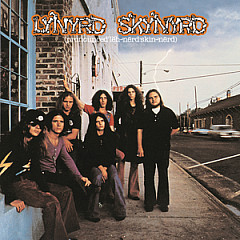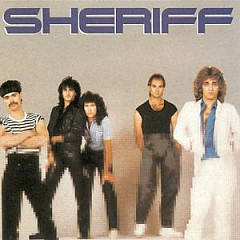Although they're not technically a bluegrass act, they're nevertheless known for gathering around a microphone, with their strictly acoustic instruments, and performing in an unplugged, bluegrass style.
You hear as much gospel, as bluegrass and country styling in the quartet's music, as tunes like "Rain in the Valley" sound as though they're ghost songs, from another place in time back in American history.
Trent Wagler leads The Steel Wheels with the heart of a poet and the passion of a preacher, and took a few minutes while at Southern California's Stagecoach festival to talk about his group's music.
 Dan MacIntosh (Songfacts): The first thing I noticed about your music is that it has a very strong gospel feel to it. Is that something that you were raised with?
Dan MacIntosh (Songfacts): The first thing I noticed about your music is that it has a very strong gospel feel to it. Is that something that you were raised with?Trent Wagler: First of all, I was raised in the church and raised around gospel music. So those sounds and those images are branded on me and my psyche. But for me, the power of those images is the metaphors that people find their ways into living out or living by - it's these metaphors we live by. And those images are powerful. Some people have grown up in a church where that metaphor's meant so much of one thing or another, but I also think if you can strip away all of the labeling - whether or not you're in or out of this particular religious side of things - there's a lot of power in the images of Exodus or the images of breaking down walls or whatever that religion tends to talk about.
And the reason people are drawn to that is because those are basic notions that everybody's dealing with in the struggles and pains of life. And so I find that language interesting to use and play with because it's got such a loaded background for so many people, but it's not with the intention of necessarily drawing people into a church atmosphere, but instead using a common lexicon to engage.
Songfacts: It's a powerful style. I think about Martin Luther King and the Civil Rights movements and how gospel songs took on a whole new meaning.
Wagler: Yeah. Absolutely. And then you go into Latin American liberation theology and some of these ideas of just breaking through a bondage and finding freedom - that's the whole story of the Bible. And so depending on how you look at it, you can use these metaphors to help guide you in whatever you're doing.
I've been inspired by songwriters like Townes Van Zandt and Tom Waits, who love to use religious language. Leonard Cohen, "Hallelujah" is one of his most powerful songs. It's not a religious song, but he's using such a powerful religious term to emote and engage the audience.
So I bow in the halls of those songwriters. I don't necessarily put myself in that same place, but I'm inspired by the way they've used that same language.
Songfacts: One of the songs I wrote down to ask you about was a Tom Waits cover called "Walk Away." What attracted you to that song?
Songfacts: What album did that come off of?
Wagler: I first heard it, it was actually on a soundtrack. It was the soundtrack for Dead Man Walking, that great film about Helen Prejean. I loved that soundtrack. That was also where I first heard Steve Earle, and I really loved his music. He wrote "Ellis Unit One" that went on that same soundtrack, and fell in love with that song, and that's also when I first started getting into Tom Waits was through that same soundtrack.
Songfacts: Have you ever had a song on a soundtrack?
Wagler: Nothing big enough to speak of. We've had plenty of little videos and people have asked us to do things. But nothing worth mentioning.
Songfacts: There's one song of yours that NPR really liked, "Rain in the Valley." They made it a song of the day, and referred to it as a heavy hymn. What inspired you to write the song?
Wagler: Well, we live in the Shenandoah Valley. It was a rainy day when I wrote the song. The idea that inspired the song was some good friends of mine who were building a cabin in this valley where there was a river. During the process of building this cabin they had been warned that when the rains really come, in this particular valley that water can flood you out so quickly and it can surprise you.
And my friend, who today would admit how ignorant he was and how he kind of blew them off, he had parked his car fairly close to the river. Where the cabin was, to get to the cabin site he had to boat across. So he boated across, they were working on the cabin, and later that evening the storm came and it washed away his car and totally flooded him out. It was a dramatic experience.
But it made me think, Wow, what power. In a world where we control so much with climate controlled rooms and houses and cars and everything, there are some things that every once in a while we're just kind of tricked into remembering we don't control. That sense of the power of that water really struck me as a force for something.
 Songfacts: I watched a part of the Ken Burns documentary on the Dust Bowl, and they had images of these clouds that would make the day into the night; in the mornings the sun was so red it looked like fire. They thought it was the end of the world, and I don't blame them. When we come up against nature at its biggest and boldest, how else are we to react?
Songfacts: I watched a part of the Ken Burns documentary on the Dust Bowl, and they had images of these clouds that would make the day into the night; in the mornings the sun was so red it looked like fire. They thought it was the end of the world, and I don't blame them. When we come up against nature at its biggest and boldest, how else are we to react?Wagler: Oh, yeah. It's an awesome kind of feeling when you see that.
Songfacts: Your song "Nothing You Can't Lose" also has a spiritual feel to it. The whole thing about you can't take it with you. Tell me about writing that song.
Wagler: That song was inspired when I was reading a book by a philosopher named Eckhart Tolle called The Power of Now. My boiled-down version of a large part of the concepts of that book is that essentially there is nothing, there is nothing besides this moment right here right now. It's encouraging all of us to really heighten our senses to what's happening in this moment and not worry about what's going to happen, not worry about what has happened. In the midst of that, in sort of unpacking that concept, he also talked about how therefore having a lot of things or having nothing doesn't matter. There's nothing that you can't lose, there's nothing that could be completely taken away from you, because as long as you have now, it's all you need to worry about.
I was writing it in the midst of the housing crisis, and it was some desperate times for people. It was this idea that, regardless of if things are going well for you or things are going poorly for you, you can center yourself around this idea that we could lose all this at any moment; we could encourage ourselves with that idea instead of scaring ourselves with that idea.
It's actually this sort of bizarre twist on a blues song, in that it's kind of an encouraging idea that everything can be taken away and let's have a moment of peace in that instead of a moment of fear and worry.
Songfacts: I have one last question. What is your favorite George Jones song and why?
Wagler: I would have to say that "White Lightnin'" is my favorite George Jones song.
Songfacts: Not a bad choice. Have you ever tried to sing it?
Wagler: I haven't. We were talking about that this morning. Because when we heard the news [of Jones' death] we were like, "Oh, man, we don't have any George Jones covers." And then we figured, you know what, I bet there'll be plenty of George Jones over the course of this weekend.
But we were just up in Canada driving around, we had a rental van that had satellite radio. We were flipping through the channels and we heard George Jones so much. It was really fascinating
Songfacts: Like it was prophetic.
Wagler: Yeah. This sort of primer or something. So we were talking about him. And it's a big loss. But, man, what a big career, what a big gift he gave to so many people with his music. I love the soulful nature of what he represents in country music.
June 27, 2013. Get more at thesteelwheels.com.
More Songwriter Interviews


